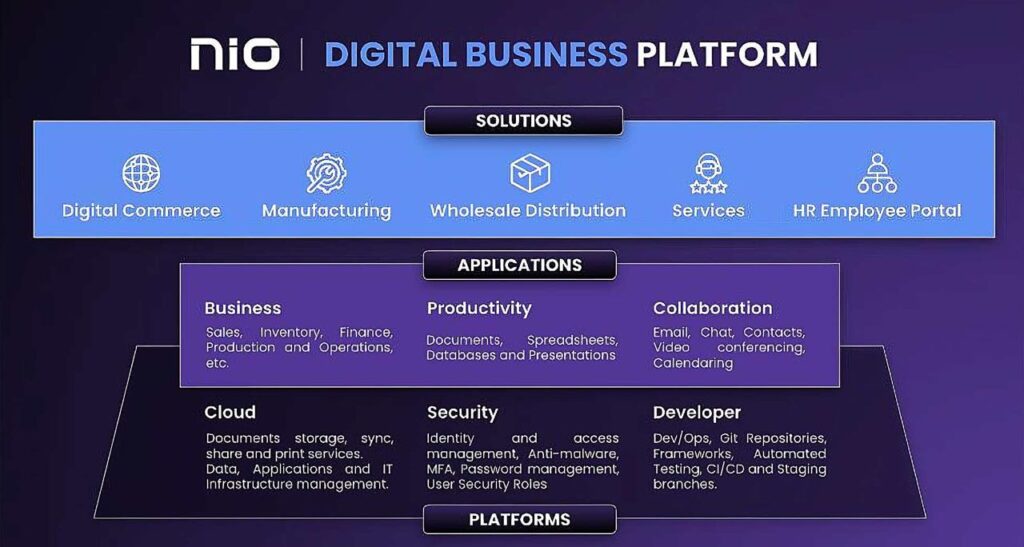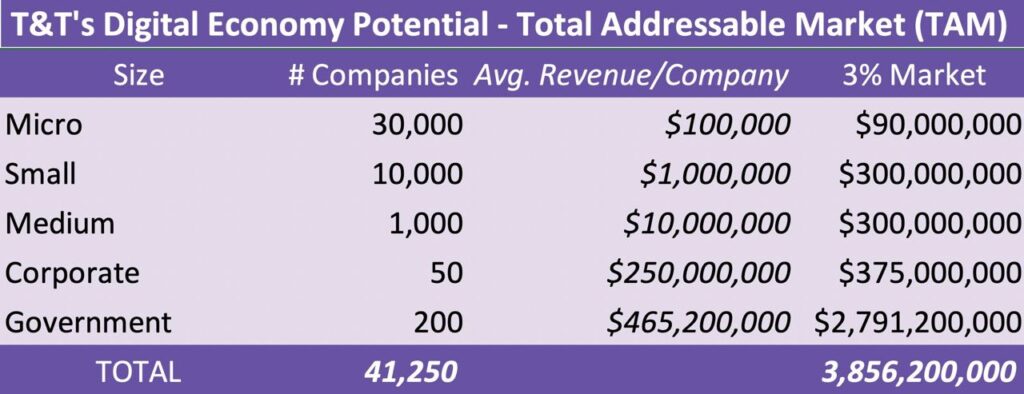
Above: Lorcan Camps. Photo courtesy Nio.
In 2014, Lorcan Camp’s was bullish about his new venture, Resonance, a side project he’d undertaken alongside his work as a solutions provider for Microsoft at Infotech.
Then he went away between 2017 and 2022 to work on what he rather nebulously describes as working with a tech startup in Silicon Valley, a story he claims is still to be told.
Now he’s back with a plan for business in Trinidad and Tobago, specifically a Software As A Service (SaaS) solution that targets medium-sized businesses with all the software tools needed to fully digitalize their entire operations.
In Camps’ cross hairs are businesses that have between 50 and 500 employees and revenues of over TT$10 million.
Nio Digital Limited delivers and integrates modern apps for customer relations management, human resource management enterprise and materials resource planning (ERP and MRP) on a secure, integrated cloud platform.
The digital business platform is built using open source components curated by the company through its partnership with Odoo; with whom it works as a gold partner.
Odoo, founded in 2005, provides open source business software for companies ranging from a single user to 300,000.
Through Nio’s gold partner status with Odoo, it can access source code to tailor its solutions more effectively for its clients.
Camps is working closely with the main business and trade chambers, Amcham, the TTMA and the TT Chamber to coordinate digital transformation efforts.

The company has also turned up as a sponsor and presenter at recent events leading the digital transformation charge as part of its efforts to lobby and deliver substantive outreach support for efforts at encouraging change.
“I’m an eternal optimist,” Camps said. “Let us acknowledge that there have been lots of positive changes. The government now has a whole ministry dedicated to digital transformation and after covid, everyone who worked remotely can now see the need for it.”
For all his enthusiasm, Camps is realistic about the reality he faces.
“Resistance mostly comes from the top,” Camps said.
Over more than 200 projects, many of them undertaken as a successful Microsoft solutions provider, he has seen most of the indicators.
“There is the God is a Trini syndrome — not recognising the need to change, and hoping things will get back to normal, a position that isn’t helped by the recent rise in oil and gas prices.”
“The worry about price and a tendency to under invest in technology. It’s too expensive, how can we afford it? ICT is a cost to be avoided and minimised, not an opportunity.”
“Ignorance on multiple levels, they don’t know what to do, don’t know what they don’t know and are terrified of the unknown and loss of control.”
“I’ve spent my entire career dealing with these situations, and I’ve got the battle scars to show for it. When you look at it carefully, it comes down to a change management issue.”
“This happens at all levels across both the public and private sector — so it’s not a quick or easy fix.”
Camps believes that the largest corporations, the banks, conglomerates and the insurance companies already have projects underway, so he has targeted the 1,000 companies in the M in SME with solutions subscriptions priced in three ranges, $5000, $10,000 and $20,000.
“Historically, system costs would be in the millions of dollars,” Camps said, “so it was only affordable to large enterprises, but with the advent of the cloud and open source software that cost has come down to thousands per month.”
Camps is sanguine about the prospects for his company. He expects to on board early adopters looking for an affordable solution and is perfectly aware that there are some businesses that won’t hear him out.
“We are not going to be able to convince the laggards right now. What we are doing is working with the early adopters. There are enough of those who see the opportunity, are realistic, and want to automate. We’re going to work only with early adopters over the next 2 years.”

To improve the conversations with those who are interested, he is offering two solutions meant to ease adoption, Nio Prime and the Digital academy.
Nio Prime builds into the support and hosting contract training for staff and advice hours for the CIO to ensure a more effective change management process.
Having started training for its own people, Nio will formalise the training system and work to build it out to national scale. The company has trained and placed two graduates of this training and is working with a list of six customers who are looking to recruit IT people trained in the system.
“In nearly every project we have created a new digital job, a new role in the organisation. Ideally, we want to find a way to gift this academy to the Government or community, so they can run it and upskill everyone.”
“Digital transformation is a fancy word and quite general, so we use words like digital commerce, wholesale distribution, manufacturing solutions. In every case there is an opportunity to increase revenues, reduce costs and improve customer service.”
“A business doesn’t have to do everything at once, they can start with a specific core process like sales, inventory or accounting and build out their digital capabilities. As they grow their investment in digital, they will realise the benefits.”

